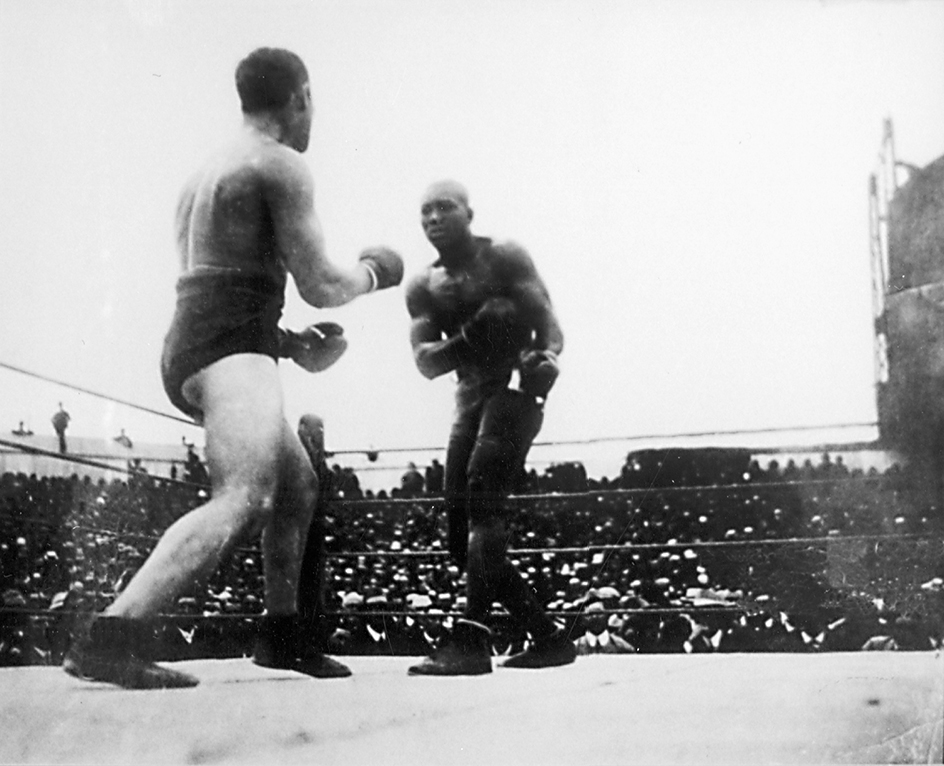Johnson, Jack (1878-1946), an American boxer, was the first black world heavyweight champion. He defeated Tommy Burns for the title in 1908.

Many whites resented Johnson’s winning the championship. “Great White Hope” tournaments were conducted to find a white boxer who could challenge Johnson. One such boxer was former heavyweight champion James J. Jeffries, who came out of retirement to fight Johnson in 1910. Johnson’s defeat of Jeffries resulted in racial violence in many United States cities.
In 1913, Johnson was found guilty of violating the Mann Act, a law that banned the transporting of women across state lines for immoral purposes. Johnson had been arrested while traveling with his white girlfriend. Many scholars believe the charge was racially motivated, and that Johnson was unjustly accused and convicted of this violation. Johnson appealed his conviction. Before a ruling on his appeal, Johnson fled the United States. He first went to Canada and then to Europe, Mexico, and South America. In 1915, Johnson lost his title to Jess Willard in Havana, Cuba. Johnson returned to the United States in 1920 and served 10 months in jail for his 1913 conviction. He fought the last of his 112 professional bouts in 1928. After 1928, Johnson was primarily a lecturer and show-business performer.
Loading the player...Jack Johnson fights Stanley Ketchel
John Arthur Johnson was born on March 31, 1878, in Galveston, Texas. He began boxing professionally in 1897. He died on June 10, 1946. In 2018, President Donald Trump granted Johnson a pardon from his conviction on the Mann Act charge.
